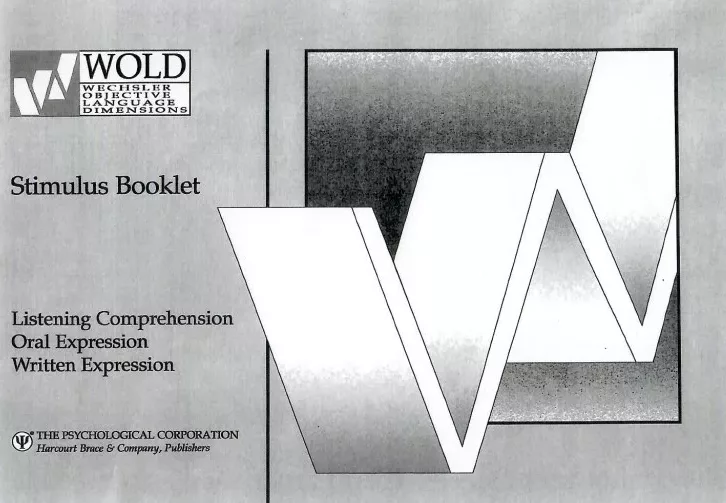
WOLD
Wechsler Objective Language Dimensions
The Wechsler Objective Language Dimensions was a test of expressive language ability in that includes the two WIAT subtests of Oral Expression and Listening Comprehension.
The WOLD is no longer published by Pearson, The Psychological Corporation’s successor, although it does appear as a citation in academic publications. However, later versions of its two language subtests are available as part of the 3rd UK Revision of the Wechsler Individual Achievement Test (WIAT-III UK), published in 2017.
WIAT-III UK
The Wechsler Objective Language Dimensions was published in 1996. It can be used in the diagnosis of special educational needs. Following the success of WORD (the Wechsler Objective Reading Dimensions) as an assessment of dyslexia in the UK, The Psychological Corporation asked us to investigate the other 5 subtests of the US based Wechsler Individual Achievement Test (WIAT) and to consider whether they, too, could be adapted and standardised for the UK.
The introduction of WIAT in the US arose following specific US legislation requiring the ability level of a child to be taken into account when making a diagnosis of learning difficulties. It was believed that diagnosis based purely on a child’s academic performance in school was insufficient. WIAT was designed as a companion test to the Wechsler Intelligence Scale for Children (WISC), and included subtests of Basic Reading, Reading Comprehension, Numerical Operations, Mathematical Reasoning, Oral Expression, Listening Comprehension, Writing and Spelling.
The Subtests included in the test were
- Oral Expression
- Listening Comprehension
These two subtests were administered to a sample of around 400 children throughout the UK on the basis of a stratified sample according to national demographics available from the Government. This enabled the development of national norms, enabling a child’s score at a particular age to be compared with that of other children of the same age.
When administered alongside a general ability test such as the Wechsler Intelligence Scale for Children (WISC), a comparison of the child’s expressive language score with that would be expected for someone of his/her age and ability provides the basic data by which an educational psychologist or other assessment professional can provide an appropriate diagnosis.
WOLD, together with its companion tests WOND and WORD, have now been superseded by WIAT-II.